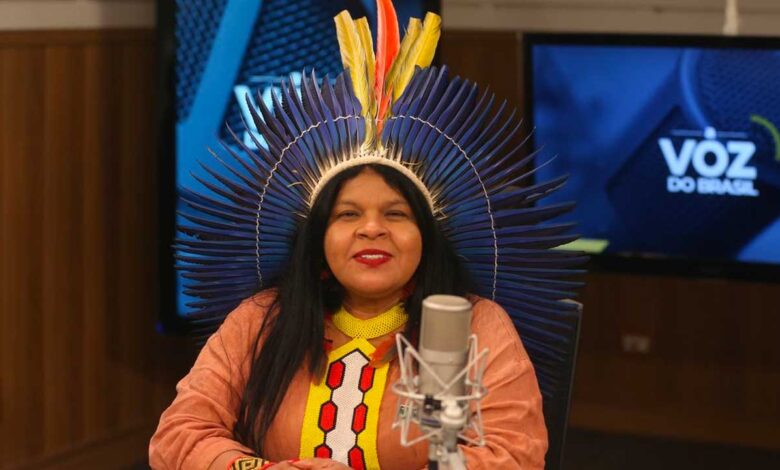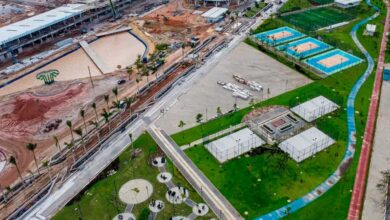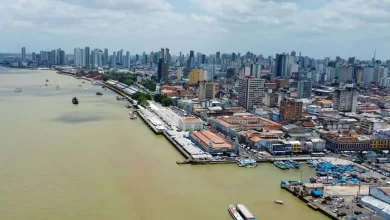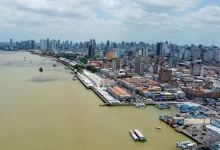
Minister of Indigenous Peoples expects demarcation of 14 areas this year
Sônia Guajajara said that processes are ready for approval
The Minister of Indigenous Peoples, Sônia Guajajara, said, in an interview with Empresa Brasil de Comunicação (EBC) vehicles , that 14 processes for the demarcation of indigenous lands are ready for homologation by the federal government.

These are areas located in eight states in almost all regions of the country. “We have 14 processes identified, which have their studies ready, completed, and already have the declaratory ordinance. We hope that President Lula can sign the homologation”, he said.
The indigenous lands ready for definitive recognition are located in Ceará, Bahia, Paraíba, Santa Catarina, Rio Grande do Sul, Acre, Amazonas and Mato Grosso. The previous government, of Jair Bolsonaro, had paralyzed all processes of demarcation of indigenous lands and the resumption of these processes was a campaign commitment of President Luiz Inácio Lula da Silva.
At the end of last year, during the government transition, the thematic working group on indigenous issues had already included, in its report, a list of 13 areas ready for demarcation. In all, they add up to around 1.5 million hectares.
Threats
Sônia Guajajara was the first indigenous woman to assume a ministerial position in the federal government, and she was interviewed in this Friday’s (27th) edition of the Voz do Brasil program, on the EBC , in which she updated the situation of vulnerability of various peoples.
The theme has gained prominence in recent days with the outbreak of the health crisis experienced by the Yanomamis in Roraima. According to the minister, this case is just “the tip of the iceberg”.
“We had six years of a lot of absence from the public power. Yanomami are just the tip of the iceberg,” said Guajajara. The minister cited the cases of the Arariboia and Guajajara peoples, in Maranhão, Uru-eu-wau-wau, in Rondônia, Karipuna, in Acre, and Munduruku, in Pará. “All these areas are in a serious situation of loggers or miners and, with that, [there is] general health and food insecurity, ” she said.
The minister also mentioned the situation of the Guarani Kaiowá indigenous people, a group that has been in the spotlight for some years now, but which remains serious. They live in an area that has yet to be demarcated and which is disputed by landowners, the so-called retaken areas, where there is permanent conflict. “We have received a demand from the Guarani Kaiowá. They live in retaken areas and this makes food production difficult. There is the situation of the Pataxó people, also in an area of recovery. It is an indigenous land that awaits a declaratory decree from the federal government. [There are also] the Awá Guarani, in Paraná, who have been looking for us to give them special attention,” she added.
Another source of concern, according to the minister, remains the Vale do Javari region, in the extreme west of the Amazon, which concentrates the largest number of isolated indigenous peoples in the entire country. Last year, the region made world news with the brutal murders of British journalist Dom Phillips and indigenist Bruno Pereira.
“In the last two weeks, a bomb was found inside the house of a Funai official [in Vale do Javari]. The Federal Police was called and managed to disarm the bomb. The Javari Valley is a priority to guarantee protection”, revealed the minister.
“With this statement by President Lula that he will resume the demarcation of indigenous lands, that he will move forward with these processes, then [this] already generates a certain turbulence, animosity from those who are against the demarcation and, with that, they try ways to intimidate the federal government’s actions”, he added.
permanent actions
The Minister of Indigenous Peoples also spoke about the need for permanent actions in indigenous territories, to repel threats and avoid new situations of vulnerability.
“This action is very important, it is the resumption of the State’s presence in the territory. And work needs to be done in conjunction with various ministries. For this, a confrontation commission was set up that will start on Monday (30), and the idea is that the Ministry of Defense will remain there with this supervisory presence, together with the Ministry of Justice, [with] the Federal Police ” , concluded.
Source Agência Brasil






